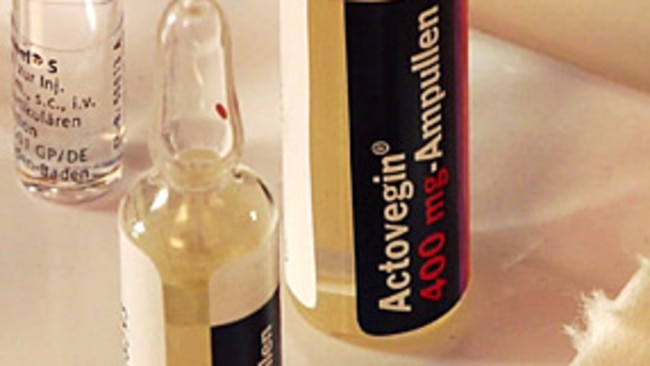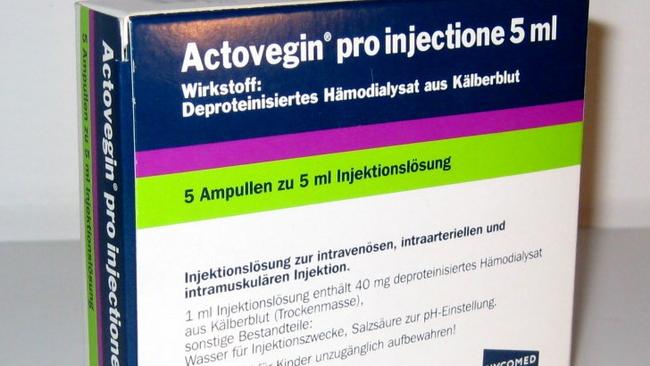Widely used calf blood extract believed to boost recovery
Actovegin is a calf’s blood extract widely used by athletes, who believe it improves recovery by enhancing oxygen flow around the body.

VIC News
Don't miss out on the headlines from VIC News. Followed categories will be added to My News.
ACTOVEGIN is a calf’s blood extract widely used by athletes, who believe it improves recovery by enhancing oxygen flow around the body.
It has been used by players across the AFL for many years.
Geelong in 2007 sent injured player Max Rooke to Germany for Actovegin treatment by controversial alternative therapy provider Hans-Wilhelm Muller-Wohlfahrt, also known as “Healing Hans”.
Richmond’s Mark Coughlan saw Muller-Wohlfahrt in 2008 for Actovegin treatment on a hamstring injury.
Actovegin is reportedly illegal to possess in the US, but it is commonly used by athletes in Europe.
GEELONG ADMITS IT GOT DRUG FROM DANK
Canadian sports doctor Anthony Galea, who has treated superstars including Tiger Woods and Alex Rodriguez, was arrested for allegedly trafficking Actovegin along with human growth hormone in 2009.
The World Anti-Doping Agency has previously expressed fears the substance is vulnerable to abuse as a doping support agent.

ASADA was on Monday unable to confirm the status of Actovegin, but the agency in 2008 said it was banned if given through the veins, although it was permitted if given through the muscle.
The AFL confirmed Geelong purchased Actovegin.
The league said it had no evidence of Geelong having used any prohibited substance, nor of any “irregular supplement or injection program”.
ESSENDON PLAYERS REVEAL JAB HORROR
Essendon’s club doctor, Bruce Reid, mentioned the calf’s blood extract in his famous letter questioning the Bombers’ injecting regimen in January 2012.
“To me it seems ludicrous that a few millilitres of calf’s blood spun down is going to give you a concentration of growth factors and other factors that would speed up recovery,” Reid said.
Dank used Actovegin at NRL club Manly where he worked alongside the Bombers’ former fitness boss Dean Robinson.
Documents from the secret AFL anti-doping tribunal revealed by the Herald Sun exposed Dank’s link to the Cats.
ASADA introduced to the tribunal an email and two invoices as it sketched its case against the Bombers.
The anti-doping agency explained that Dank and Robinson had used similar methods everywhere they had worked.
The tribunal ultimately accepted the ASADA submissions, making specific reference to Dank’s link to Geelong in its findings.
The tribunal wrote: “Mr Robinson suggested profiling players, including ‘amino acids analysis’. While at Geelong Mr Robinson used the services of Mr Dank.”
They made this reference to amino acids after hearing days and weeks of evidence about Dank’s alleged activities at Essendon.
This evidence included an October 2011 text message exchange between Dank and Robinson in which the pair discuss using the term amino acids to describe peptides.


